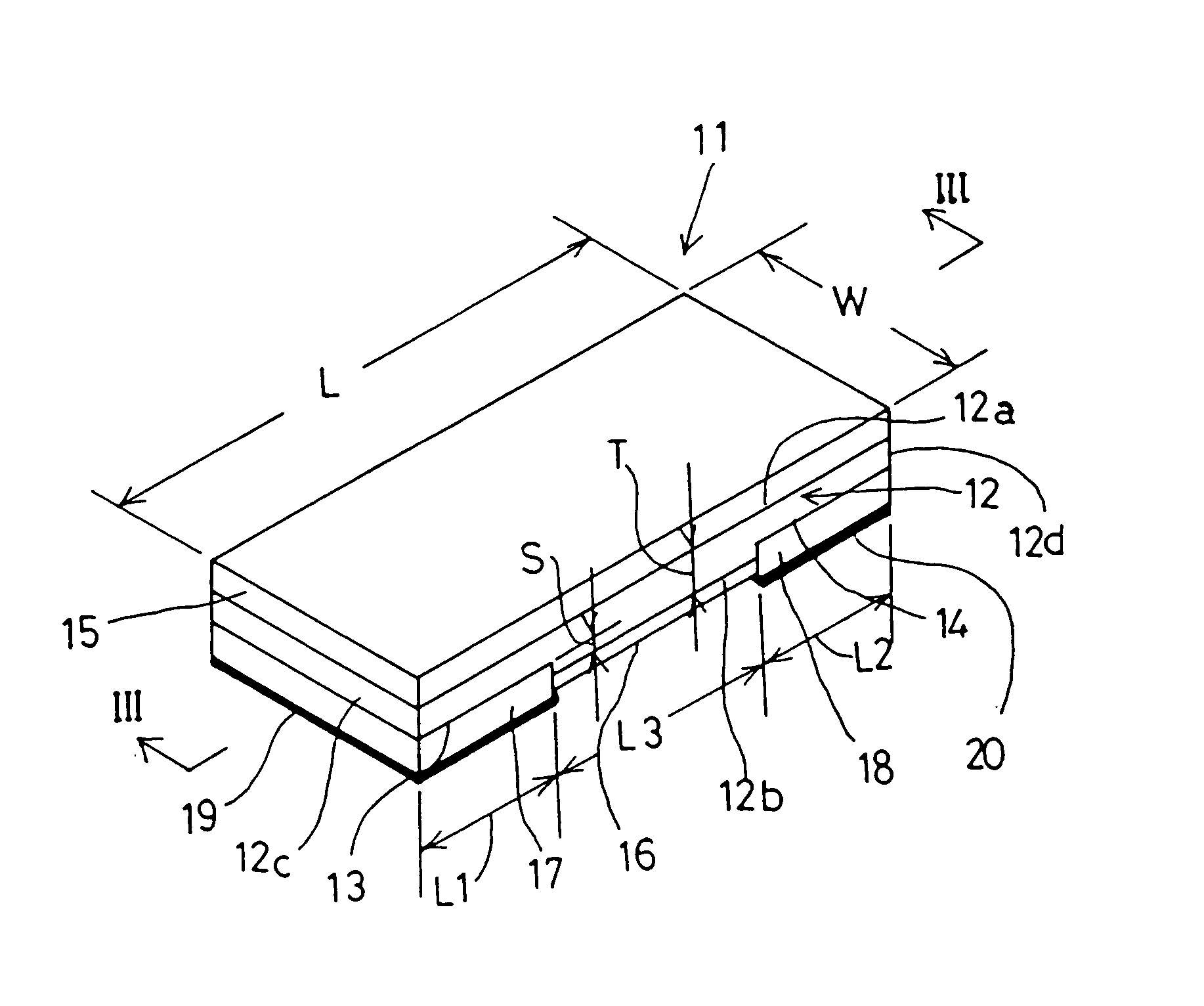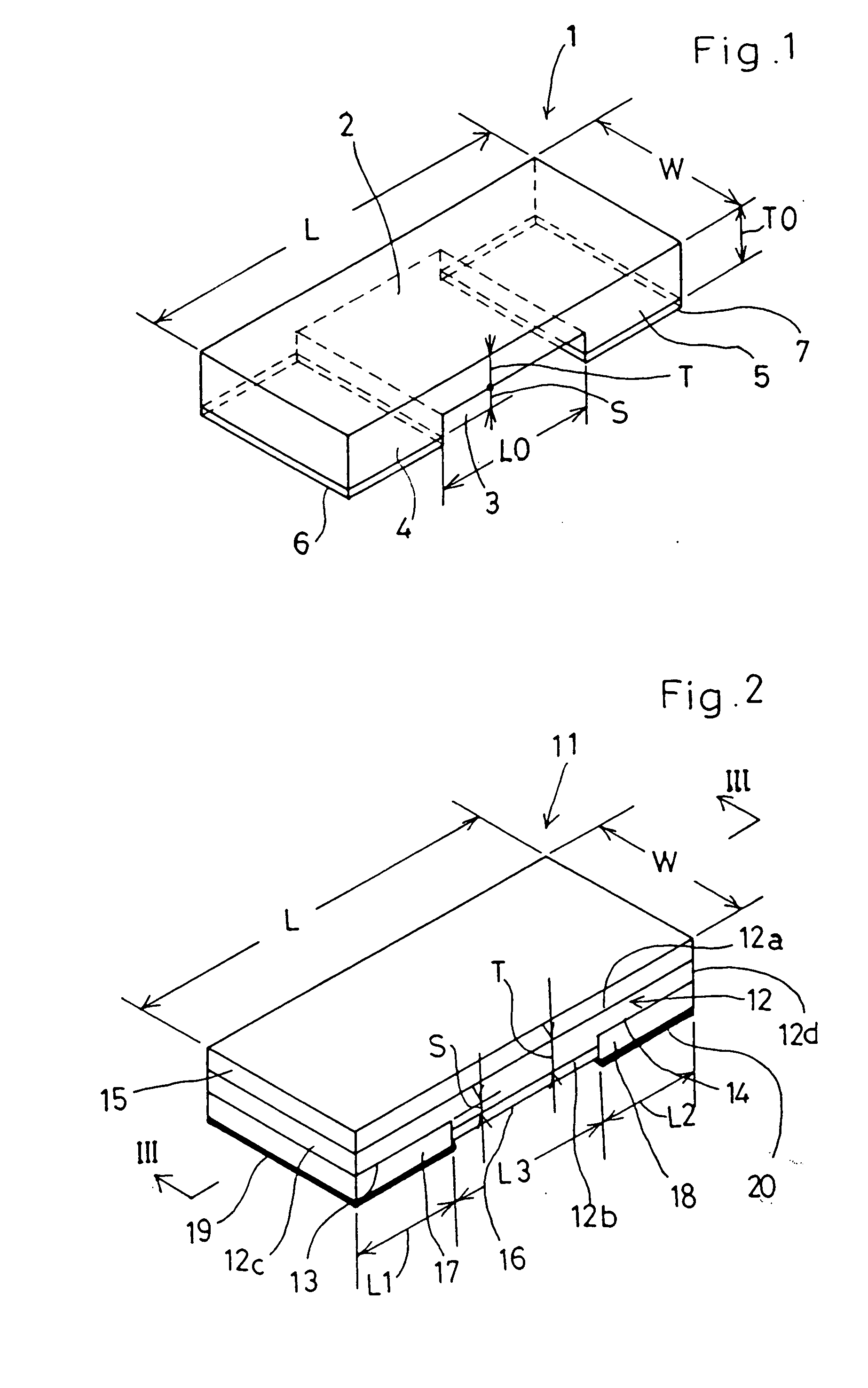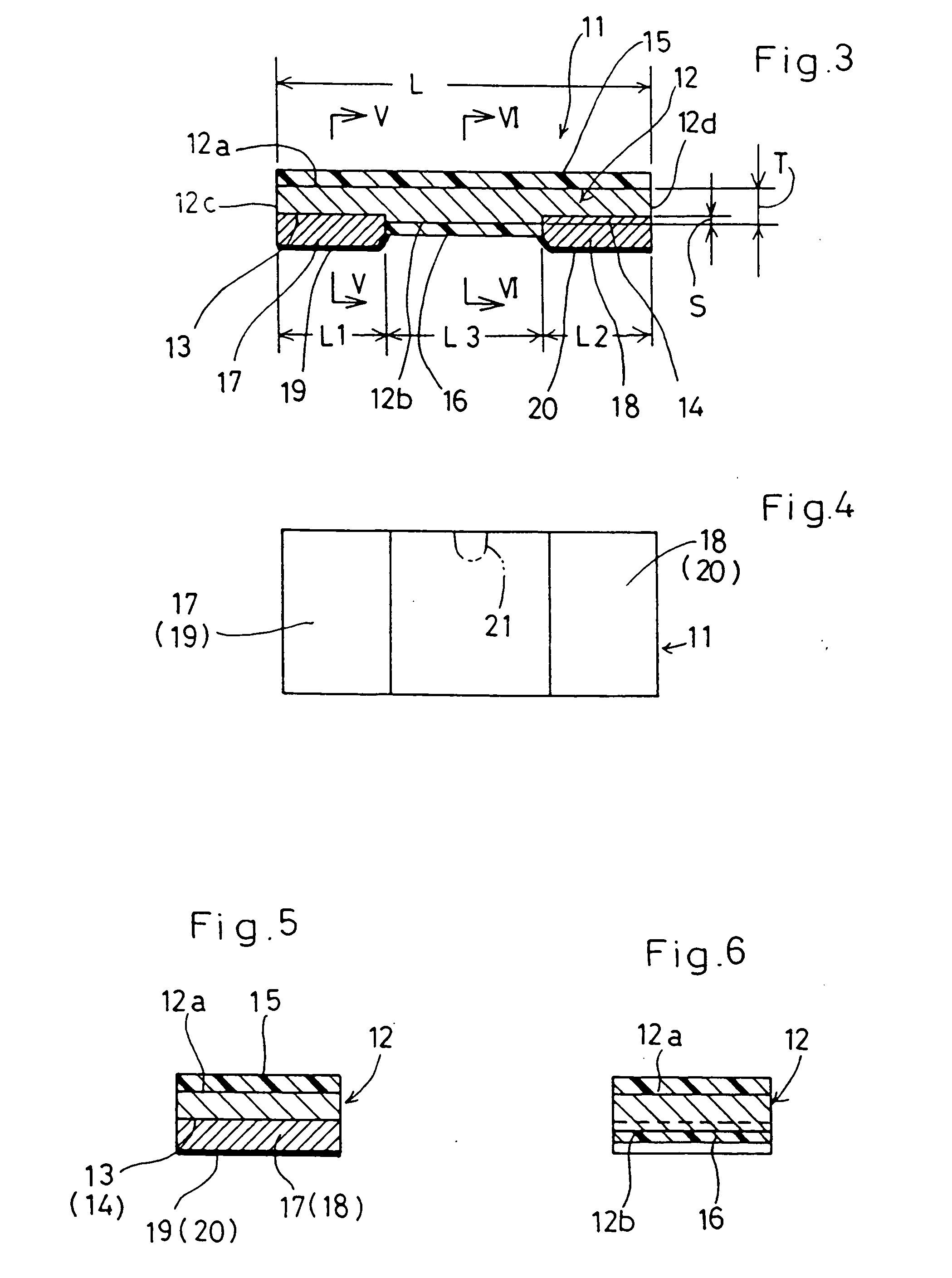Chip resistor having low resistance and its producing method
a technology of resistor and chip, which is applied in the manufacture of resistor chips, resistors adapted to the application of terminals, resistor details, etc., can solve the problems of producing a change in resistance and increasing manufacturing costs, and achieves the reduction of overall height of chip resistor, reducing weight, and increasing the height of connection terminal electrodes
- Summary
- Abstract
- Description
- Claims
- Application Information
AI Technical Summary
Benefits of technology
Problems solved by technology
Method used
Image
Examples
first embodiment
[0048] the present invention is described below with reference to FIG. 2 to FIG. 6. In these Figures, the reference symbol 11 indicates a chip resistor according to an embodiment of the present invention.
[0049] This chip resistor 11 comprises a resistor element 12 formed in rectangular shape of length L and width W.
[0050] This resistor element 12 is made of metal plate of thickness T. The metal used is for example alloy such as copper-nickel alloy, nickel-chromium alloy or iron-chromium alloy in which metal (hereinafter called a high-resistant metal) having a higher resistance than a metal substrate is added to the substrate, which is made of a metal having a lower resistance (hereinafter called low-resistant metal).
[0051] In portions at the two ends of the lower surface of 12b, of the upper and lower surfaces 12a and 12b of the resistor element 12, recesses 13 and 14 are cut which are respectively of length L1, L2 from the two end faces 12c, 12d of this resistor element 12, and o...
second embodiment
[0074] Next, the present invention will be described with reference to FIG. 16 to FIG. 20.
[0075] In these Figures, the reference symbol 111 indicates a chip resistor according to the second embodiment of the present invention.
[0076] This chip resistor 111 comprises a resistor element 112 that is formed in a rectangular shape with a length L and a width W.
[0077] This resistor element 112 is made of metal plate of thickness T. The metal used is for example alloy such as copper-nickel alloy, nickel-chromium alloy or iron-chromium alloy in which metal (hereinafter called a high-resistant metal) having a higher resistance than a substrate is added to the substrate, which is made of a metal having a lower resistance (hereinafter called low-resistant metal).
[0078] Connection terminal electrodes 117, 118 are formed at portions at the two ends thereof by cutting a recess 113 of length L0 and depth S in the lower surface of the upper and lower surfaces of the resistor element 112, in about...
PUM
| Property | Measurement | Unit |
|---|---|---|
| resistance | aaaaa | aaaaa |
| resistance | aaaaa | aaaaa |
| thickness T0 | aaaaa | aaaaa |
Abstract
Description
Claims
Application Information
 Login to View More
Login to View More - R&D
- Intellectual Property
- Life Sciences
- Materials
- Tech Scout
- Unparalleled Data Quality
- Higher Quality Content
- 60% Fewer Hallucinations
Browse by: Latest US Patents, China's latest patents, Technical Efficacy Thesaurus, Application Domain, Technology Topic, Popular Technical Reports.
© 2025 PatSnap. All rights reserved.Legal|Privacy policy|Modern Slavery Act Transparency Statement|Sitemap|About US| Contact US: help@patsnap.com



